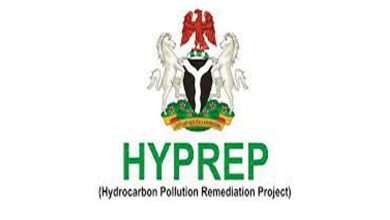Petroleum Industry Governance Bill is repressive, unacceptable to host communities, Says MOSOP
The Movement for the Survival of the Ogoni People (MOSOP) has said that the Petroleum Industry Governance Bill (PIGB) that is currently before the Nigerian Senate is an unfair and repressive instrument designed against the Ogoni people and the entire oil producing communities of Nigeria.
President of MOSOP, Fegalo Nsuke said this while addressing Ogoni youths at the MOSOP Secretariat in Bori, Khana local government area of Rivers State, a statement by Alex Akori, Secretary-General of MOSOP said.
Speaking on the Petroleum Industry Bill, the MOSOP President said the Bill is punitive and repressive against the innocent residents of oil bearing communities. According to him, the Bill places the onus of protecting pipelines on the community while exonerating the oil companies and security agencies whose poor operating standards and negligence have been responsible for oil theft in the Delta.
Nsuke said: “They want our people to pay for every vandalism which happens while we sleep, yet the the vandalized pipes and crude ends up within the same oil industry and the crude are sold through our territorial waters under the watch of our strong state security.
“Why should innocent citizens be made to pay for the pipelines vandalized by thieves in connivance with some security operatives who are part of the cabal involved in crude oil racketeering,” he asked.
Nsuke said the proposed bill makes no provision for environmental protection and what should be the punishment for oil spills. Rather it prescribes punishment for innocent community dwellers simply because oil is found on their soil.
He described as repressive and unjust, the proposal for the people to lose their benefits if an oil spill occurs. He said that was going to incite community resistance which the government will only suppress by killing the people.
Nsuke, therefore, demanded a revision of the bill to be more realistic in addressing the challenges faced by the people of the Niger Delta and other oil bearing communities in Nigeria.
According to the MOSOP president, what the bill is saying is that the people’s meagre benefits will now be used to fix pipelines and clean up oil spills when they occur.”
The PIGB does not recommend any penalty for oil companies whose equipment failure leads to oil spills and environmental contamination. It places no responsibility for the security of oil pipelines on the companies and does not address the issues of oil spills management when they do occur because they certainly will. All of these have become the responsibility of peaceful community residents.
“We won’t sleep again, we won’t go to the farms again, we all have to stay awake all night watching their pipelines, our work under the PIGB is to look after oil pipelines so we can get a meagre 2.5 percent of oil revenue while the rest of Nigeria takes 97.5 percent. And then they send their soldiers with arms to break the pipes and seize our meagre benefits. That is discriminatory and we will challenge those laws by all legal means necessary”.
Nsuke held that the communities cannot be blamed for organized crime within the oil industry. He held that the bill is unfair when it targets the communities as solely responsible for oil spills in the Delta.
The MOSOP President maintained that the bill cannot presume that the oil producing communities are the ones responsible for pipeline vandalism in the Niger Delta when evidence abound that it is an organized crime done in collaboration with security agencies.
“The oil companies themselves are not honest in their relationship with the communities. For instance, in the 2008 oil spills in Bodo, Shell blamed the community accusing them of sabotage. Investigations later showed that the spill was due to Shell’s ruptured pipe. The UNEP report on Ogoni was sponsored by Shell and in their first report blamed the Ogoni community for 90 percent of the oil spills that destroyed the environment. Eventually, following factual protests, a later report showed that Shell did not adhere even to their own very poor standards in their operations in Ogoni” Nsuke said.
He held that all the oil companies want to do is give the impression that it is the communities that cause the pollution and that is not true at all.
Nsuke held that poor local community dwellers cannot be responsible for the sophisticated crime of oil theft. He called on the National Assembly not to pass the Bill in its current state because it will only become an unfair, repressive and useless law which will end up hurting the economy and be another anti-people law that will only open up another chapter of the Niger Delta agitation.
“When the security personnel vandalize pipelines in connivance with industry professionals, you get the community to pay for the damage and withhold their entitlements. What are you asking them to do? They will certainly not be silent about that because it will be unjust and repressive,” he stressed.
“Our people cannot accept to only receive the pains of natural resource extraction while Abuja and the rest of Nigeria share and enjoy the benefits,” Nsuke insisted.
The MOSOP president further said “I think that the PIGB is the government response to the unrest in the Niger Delta. The twin issues of environmental pollution and underdevelopment have fueled the Niger Delta unrest so if there is a Petroleum Industry Bill which fails to address these two issues, then it is actually faulty and fails to address the problem and it could further make things worse by making communities pay for crimes they did not commit” Nsuke concluded.




